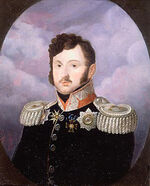-
Segethus Thomas
Segethus Thomas
Segethus Thomas was a native of Scotland, who spent much of his time in visiting foreign countries. No detailed account of his wanderings has reached the present age ; but the vicissitudes through which he passed in Bohemia, Hungary, Poland and Muscovy, according to Ruarus, were sufficient to have filled a volume. While in Poland he became a member of the Socinian Church ; but what was his original inducement for visiting that country does not appear. Count Krasinski says, "Many Scotch families settled in Poland during the sixteenth and seventeenth centuries, where they resided, some for commercial purposes, some as military adventurers, and some, perhaps, because they found a safe asylum during the religious commotions which disturbed their own as well as many other countries. They had large congregations at Cracow, Posnania, Keydany, (a town in Lithuania,) and at Lissa or Leszno, the heritage of the illustrious family of Lesczynski. They became thoroughly Poles, and many Scotch names, such as Haliburton, Gordon, Middleton, Watson, &c, are found amongst the Polish gentry. Several others, as Forbes, Inglis, &c, are extinct, but are well known. There was a celebrated Polish author descended from these families, Dr. Johnston, who wrote several works on Natural Philosophy." (Hist. Sketch of the Reformation in Poland, Vol. II. p. 181.) It is difficult to resolve the name Segethus into any North British name, with which we are now familiar. But the person who bore it may have dropped his national surname, and substituted this in its place, as other foreigners are known to have done, after their settlement in Poland.
Smalcius says, in his Diary, that Thomas Segethus had conceived a taste for divine truth at Lublin; and that he went to Racow, July 13th, 1612, for the purpose of learning something more respecting it. His stay at Racow, however, did not exceed six days. Ruarus, when a student at Altorf, writing to Heino Vogler, mentions a visit which he received from "Thomas Segetus;" and speaks of him as an old friend. At this interview Segethus alluded to his intercourse with Smalcius and others at Racow ; and the glowing account which he gave of the state of things in that seed-bed of Unitarianism no doubt had its effect in inducing Ruarus himself to visit Racow in 1614. "Is aiebat, se, cum Racovia, minoris Poloniae oppido, ubi Socinianorum haeresis potissimum floret, data opera, transiisset, putasse, quod in alium terrarum orbem delatus venerit: cum enim alibi bellis omnia et tumultu perstreperent, ibi quieta fuisse omnia, homines sedatos et ad modestiam compositos, ut angelos existimare possis, caeteroquin acres in disputando linguarumque peritissimos, inter quos praecipue nominabat Smalcium, Thuringum quendam, et Hieronymum Moscorovium Andreae Dudithii generum."(Vidend. Bock, Hist. Ant. T. I. pp. 828, 829. Smalcii Diar. A. D. 1612, apud Zeltn. p. 1196. Ruari Epist. Cent. ii. N. 1.)
DidierLe Roux
Retour page d'accueil
___________________________________________________________________________________________________________________
Le Roux Didier - Unitariens - © Since 2006 - All rights reserved " No reproduction, even partial, other than those planned in the article L 122-5 of the code of the intellectual property, can be made by this site without the express authorization of the author ".
-
Commentaires


